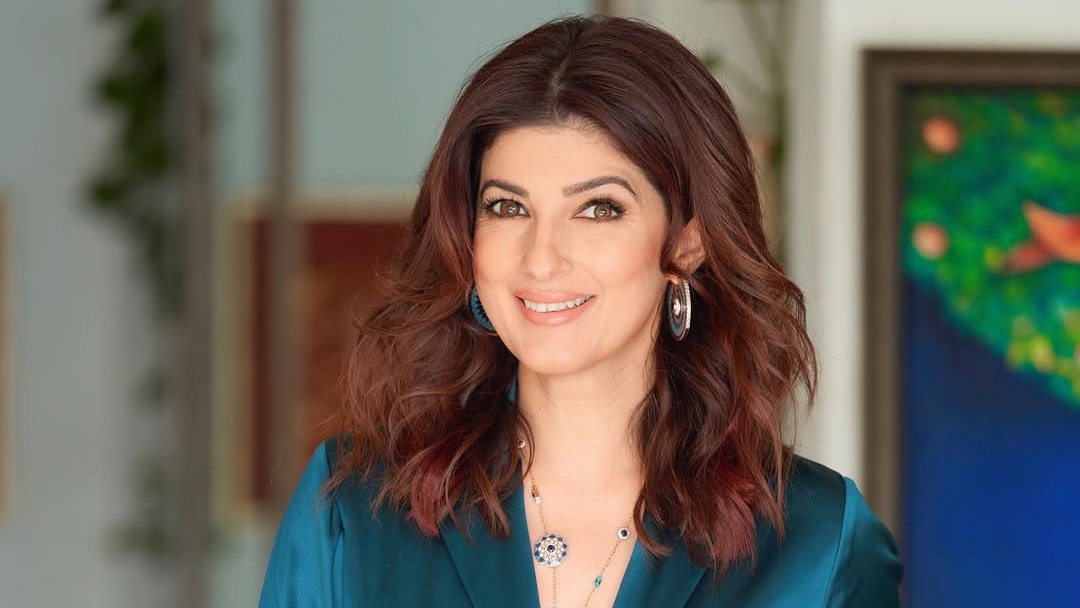From being an award-winning writer to a columnist, Twinkle Khanna is known to dissect contemporary topics and blend them well with the comments that she puts in her write-ups. Her book, Welcome to Paradise, won the Crossword Book Award in the Popular Fiction category. As much as rejoicing in the milestone, she remembers the journey that took her a long way. Her write-ups won hearts but also became hot topics of discussion among the literary as well as the common world. Her stardom as an actor doesn’t quite reflect on her work. She is a successful writer who had her obstacles. Battling those with her wit and writing she opens up about life and her work as an author.
She is a firm believer in being a resilient person, which, she adds goes well along with some luck and talent. Talking to her gives a glimpse of how she made her way through challenges. It also shows that despite having all the privileges she had her struggles. Most of those she managed. That’s what led her to her third Crossword Award. In an interview with The Free Press Journal, Twinkle speaks about various aspects of life. Her first reader, her secret potion that helps her multitask between writing and podcasting and her lack of interest in switching to screenwriting from book writing. Her views on dealing with life challenges are quite inspiring as it leaves a good message for everyone.
Excerpts from the interview:
You have won many awards at Crosswords. What was the journey like?
I guess, I am making up for the days when I was younger. I didn’t win many awards so I am making up for the lost time. One thing that when people look at my life, and my trajectory, I would like to say that I have never taken any obstacle as a pothole. I look at failure as a trampoline. When I end up being on that then the trampoline only propels me to go higher. Probably that is why I said in my speech that if you support me then that’s great but if you don’t, I am here anyway. The only thing that you need to reach somewhere in life, along with some luck and talent, is resilience. And I hope I continue to have the trait till the time I get Alzheimer’s and I don’t remember what trait I wanted to have.
The characters in your life are often inspired by real-life stories. Have you ever got into trouble because of that?
I have never got into trouble because I disguised them well. Once I was interviewing Ruskin Bond and he does the same thing. I asked him, you take characters from real life and how do you manage it? And he said people often don’t recognize themselves because they have a deluded version of who they are and two, you should just wait for them to die and then write about them. I’ve also waited for some people to die and then written about them.
Which is that one character that you wished you hadn’t included?
I don’t think I look at characters I don’t want to include. Perhaps I could say that I had fleshed them out better. Give them more dimensions. I can’t think of any character that I don’t want.
Who is the first reader of your book other than you? And why?
It’s my sister because she is a voracious reader and in fact, she reads more than I do. She reads different genres of books. So I like to get her opinion because she is someone who reads anyway and she knows me and can be honest with me.
What was your reaction to the dramatisation of The Legend of Lakshmi Prasad?
First, the story was turned into a play by Lillete Dubey and is still running successfully. I think it’s nice that a story can live in different forms and be different things for people. My intention was never to write for the stage or a film. They do change the material when they adapt. But once you have sold the rights you have to almost treat it like you’ve given away your child and now what happens to your child you have no idea but you have to deal with it.
You are a podcaster, author and columnist. Each of these jobs requires a lot of attention. How do you manage?
Coffee. Lots and lots of coffee. That’s pretty much my secret.
You have written several books. Have you thought of writing for the screen?
No. I think that’s a different skill set and I haven’t even really studied screenwriting so it’s a very different sort of approach. In most novels, it’s the surface of the pond; you can see the surface and dive into the pond. Whereas in the screenplay you are limited only to the surface of the pond. You cannot, 90% of the time, it is restricted to being an omniscient narrator. Some films have internal monologues. So it’s a bit different.
